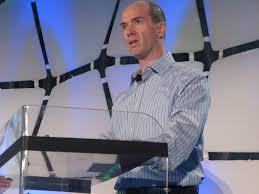Ben Horowitz [1966-0] English    
Rank: 101
Businessman
Ben Horowitz is an American businessman, investor, blogger, and author. He is a high technology entrepreneur and co-founder and general partner along with Marc Andreessen of the venture capital firm Andreessen Horowitz. Communication, Courage, Knowledge, Architecture, Design, Diet, Education, Funny, Intelligence, Leadership, Society, Technology, Trust |  |